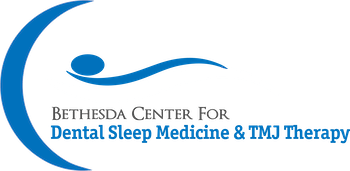
Depression is a distressingly common mental disorder that affects around one in every 20 adults around the world. The condition has many possible risk factors, and studies suggest that one potentially major contributor is sleep apnea. How can a sleep disorder be related to depression? And what can you do to address both problems? Here’s what you need to know.
What is Sleep Apnea?
Sleep apnea is a disorder where breathing repeatedly stops while you’re asleep. It forces your body to frequently wake up for air, interrupting the sleep cycle and preventing you from getting the quality rest you need to stay healthy and alert during the day. Most of the time, sleep apnea is caused by tissues in your mouth or throat relaxing and blocking your airway.
The Connection Between Sleep Apnea and Depression
According to a study in the Journal of Clinical Sleep Medicine, over 70% of people with sleep apnea also have depressive symptoms. The correlation may lie in the fact that sleep apnea and depression share several side effects, including excessive tiredness, trouble concentrating, gaining weight, and headaches. In general, the more severe your sleep apnea is, the more likely you are to also notice signs of depression.
If you believe you’re suffering from depression, it’s a good idea to be screened for a sleep disorder as soon as possible. Treating your sleep apnea could help you reduce your depressive symptoms, and it’s best to have both conditions addressed before they can worsen.
Treating Sleep Apnea and Depression
To have your sleep apnea treated, first you need to undergo what’s known as a sleep test. This is where your breathing and other vital symptoms are monitored while you sleep to identify potential signs of a sleep disorder. If the results indicate that you have sleep apnea, you can set up a visit with a sleep dentist to start exploring appropriate forms of treatment.
The most well-known solution for sleep apnea is CPAP therapy, which involves a special machine that forces air into your airway to keep it clear while you sleep. However, many people find it difficult to sleep with a noisy CPAP machine, which is why your sleep dentist can offer oral appliance therapy as an alternative. An oral appliance can reposition your jaw or tongue to open your airway, thus lowering your risk for the breathing interruptions associated with sleep apnea.
In the meantime, you should consult your regular doctor to see how you can manage your depressive symptoms. Their recommendations will depend on your situation as well as the severity of your mood disorder.
Being proactive is the key to keeping both sleep apnea and depression under control. Reaching out to a sleep dentist today could make all the difference in improving your mental health and being able to enjoy a good night’s sleep again.
About the Author
Dr. Bernard L. Greenbaum graduated from the Georgetown University School of Dentistry, and he’s been helping Bethesda patients smile for over 25 years. In addition to general dental services, he also provides oral appliance therapy to help patients who are suffering from sleep disorders. To schedule a consultation with Dr. Greenbaum at the Bethesda Center for Dental Sleep Medicine & TMJ Therapy, visit his website or call (301) 530-0552.
